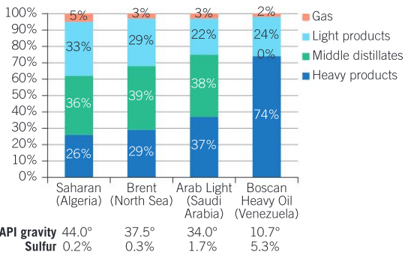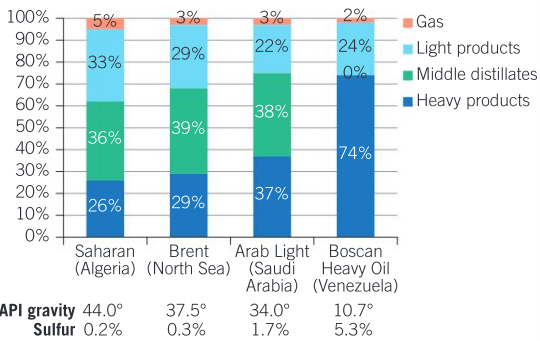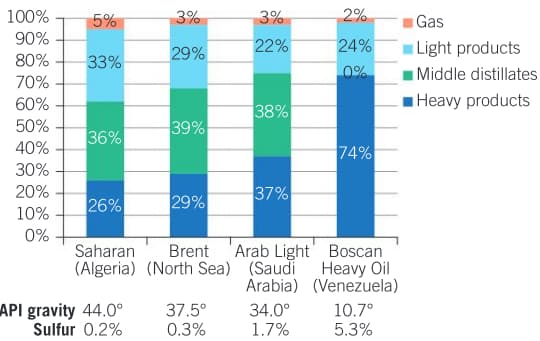Gary Horner Solutions for Chapter: Evidence, Exercise 16: Data-based question: How does the composition of crude oil reserves vary?
Gary Horner Chemistry Solutions for Exercise - Gary Horner Solutions for Chapter: Evidence, Exercise 16: Data-based question: How does the composition of crude oil reserves vary?
Attempt the practice questions on Chapter 2: Evidence, Exercise 16: Data-based question: How does the composition of crude oil reserves vary? with hints and solutions to strengthen your understanding. MYP Chemistry A concept-based approach Years 4&5 solutions are prepared by Experienced Embibe Experts.
Questions from Gary Horner Solutions for Chapter: Evidence, Exercise 16: Data-based question: How does the composition of crude oil reserves vary? with Hints & Solutions
Not all crude oil is the same. The composition varies according to the oil reserve from which it is extracted.
- Refinery output for different crude oils. API stands for the American Petroleum Institute. API gravity is a measure of the density of the crude oil. A higher API gravity indicates less dense oil.
Look at the charts and the illustration of fractional distillation. Explain which crude oil is best suited to the production of gasoline.
Not all crude oil is the same. The composition varies according to the oil reserve from which it is extracted.
- Refinery output for different crude oils. API stands for the American Petroleum Institute. API gravity is a measure of the density of the crude oil. A higher API gravity indicates less dense oil.
Explain why crude oil from Venezuela is called heavy oil. How does the molecular mass of the most common hydrocarbon in this crude oil differ from the hydrocarbons commonly found in Saharan crude oil?
Not all crude oil is the same. The composition varies according to the oil reserve from which it is extracted.
- Refinery output for different crude oils. API stands for the American Petroleum Institute. API gravity is a measure of the density of the crude oil. A higher API gravity indicates less dense oil.
The terms sweet crude oil and sour crude oil refer to the sulphur content of the crude oil. Crude oil with less than sulphur content is classified as sweet. Which crude oils on this graph are considered sweet oil?
Sulphur is corrosive. Suggest reasons why sweet oil is easier to refine and is preferred by refineries? Why does sweet oil command a higher price per barrel?
